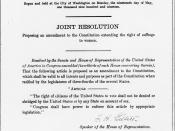Case brief on 5th amendment
FACTS:
A federal grand jury in South Dakota is investigating possible criminal violations of the Clean Water Act, at a corporation's wastewater treatment facility. Two former employees have pleaded guilty to a conspiracy to violate the Clean Water Act, and the grand jury investigation includes whether senior corporate officers may be criminally liable as "responsible corporate officer".
ISSUE:
Does the individual have a valid basis to assert the Fifth Amendment privilege of self-incrimination?
What are the ramifications of waiving or asserting the privilege both to the individual and the corporation? Are there any other valid alternatives to invoking the privilege? Whether the corporation may refuse to produce records to the IRS on grounds that they are protected by the Fifth Amendment privilege of self-incrimination.
RULE:
People are protected by the Fifth Amendment to prevent self-incrimination. Individuals are protected differently than businesses. Our own constitutional provision provides that no person shall be compelled in any criminal case to be a witness against himself.
These words, when considered in the light to be shed by grammar and the dictionary appear to signify simply that nobody shall be compelled to give oral testimony against himself in a criminal proceeding under way in which he is defendant.
ANALYSIS:
Do individuals have more rights than businesses? Individuals are more so protected because they are ONE and by providing documents or other evidence may lead to self-incrimination. Businesses function with several people. The Fifth Amendment does not protect them from information obtained by accountants, or other documents. Both common law rules and legislative enactments have granted many substantive rights to labor unions as separate functioning institutions.
CONCULSION:
The ex-employees do not have to produce documents because they were served to them personally and if would be in violation of...


